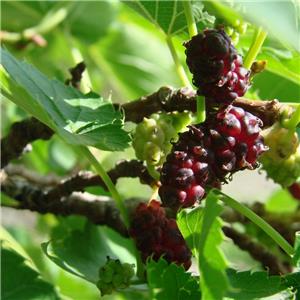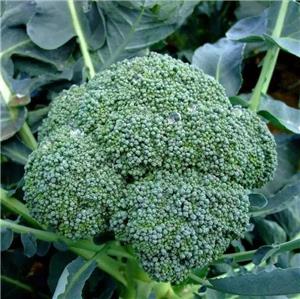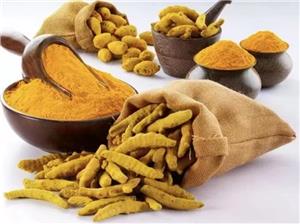-
0608-2021
L-Carnitine: Benefits, Side Effects, Sources and Dosage
L-carnitine is a naturally occurring amino acid derivative that’s often taken as a supplement. It is used for weight loss and may have an impact on brain function. However, popular claims about supplements don’t always match up with the science. This article examines the potential risks and benefits of L-carnitine supplements and explains how this nutrient functions in your body.
-
0507-2021
Fourth meeting of the WHO Nutrition Guidance Expert Advisory Group (NUGAG) Subgroup on Policy Actions
In response to a call from the 58th World Health Assembly (May 2005), the WorldHealth Organization (WHO) established the Guidelines Review Committee (GRC) in 2007 with the purpose of developing and implementing procedures to ensure that WHO guidelines are developed in ways consistent with internationally recognized best practices, emphasizing the appropriate use of systematically reviewed available evidence. The robust guideline development process being implemented by WHO is overseen by the Guideline Review Committee (GRC) and is described in detail in the WHO Handbook for guideline development (2014).
-
0107-2021
Alpha-Lipoic Acid (ALA) and Diabetic Neuropathy
Alpha-lipoic acid (ALA) is a possible alternative remedy to treat the pain associated with diabetic polyneuropathy. Neuropathy, or nerve damage, is a common and potentially serious complication of diabetes. Nerve damage is permanent, and its symptoms can be difficult to alleviate. Polyneuropathy involves the peripheral nerves of the body. It’s the most common form of neuropathy in people who have diabetes, and it causes foot and leg pain.
-
1606-2021
Monk Fruit vs. Stevia: Which Sweetener Should You Use?
Monk fruit and stevia are nonnutritive sweeteners. This means they have little-to-no calories or nutrients. Both are marketed as natural alternatives to sugar. This is true to a point. Monk fruit is typically not as refined as stevia, but may contain other ingredients. The stevia you buy in the grocery store is vastly different from the stevia you grow in your backyard. Even so, stevia and monk fruit sweeteners are more natural choices than artificial sweeteners containing aspartame, saccharine, and other synthetic ingredients. If you’re diabetic or trying to lose weight, read monk fruit or stevia product labels carefully to see if higher-calorie and higher-glycemic sweeteners were added. In the end, it all comes down to taste. If you don’t like the taste of monk fruit or stevia, their pros and cons don’t matter. If possible, try them both to see which you prefer.
-
1106-2021
WHO steps up action to improve food safety and protect people from disease
Every year 600 million cases of foodborne illnesses are reported. In 2010, 420 000 people died due to such diseases as salmonella and E.coli infection, a third of them children under five years of age. It is estimated that this figure is increasing year after year, but it is difficult to get a clear picture of the real impact foodborne diseases are having around the world.
-
1006-2021
Alpha-Lipoic Acid: Weight Loss, Other Benefits and Side Effects
Alpha-lipoic acid has gained a lot of attention in recent years. It’s an organic compound that acts as a powerful antioxidant in the body. Your body produces alpha-lipoic acid naturally, but it’s also found in a variety of foods and as a dietary supplement. Research suggests that it may play a role in weight loss, diabetes, and other health conditions. However, many people wonder whether it’s effective. This article reviews alpha-lipoic acid, its benefits, side effects, and recommended dosage.
-
1006-2021
How Green Tea Can Help You Lose Weight
Green tea is one of the healthiest beverages on the planet. It is loaded with antioxidants and various plant compounds that may benefit your health. Some people even claim that green tea can increase fat burning and help you lose weight. This article examines the evidence surrounding green tea and weight loss.
-
0706-2021
7 Proven Health Benefits of Ginseng
Ginseng has been used in traditional Chinese medicine for centuries. This slow-growing, short plant with fleshy roots can be classified three ways, depending on how long it is grown: fresh, white or red. Fresh ginseng is harvested before 4 years, while white ginseng is harvested between 4–6 years and red ginseng is harvested after 6 or more years. There are many types of this herb, but the most popular are American ginseng (Panax quinquefolius) and Asian ginseng (Panax ginseng). American and Asian ginseng vary in their concentration of active compounds and effects on the body. It is believed that American ginseng works as a relaxing agent, whereas the Asian variety has an invigorating effect (1Trusted Source, 2Trusted Source). Ginseng contains two significant compounds: ginsenosides and gintonin. These compounds complement one another to provide health benefits (3Trusted Source). Here are 7 evidence-based health benefits of ginseng.
-
3105-2021
10 Benefits of Green Tea Extract
Green tea is one of the most commonly consumed teas in the world. Green tea extract is its concentrated form, with just one capsule containing the same amount of active ingredients as an average cup of green tea. Like green tea, green tea extract is a great source of antioxidants. These have been credited with a range of health benefits — from promoting heart, liver, and brain health to improving your skin and even reducing the risk of cancer (1Trusted Source). What’s more, many studies have looked at the ability of green tea extract to aid weight loss. In fact, many weight loss products list it as a key ingredient. Despite these benefits, it’s important to know that green tea extract can also be toxic when taken in excess, so always talk with a health professional if you’re interested in taking these supplements. This article explores 10 science-based benefits of green tea extract.
-
2605-2021
Does Too Much Vitamin C Cause Side Effects?
Vitamin C is a very important nutrient that’s abundant in many fruits and vegetables. Getting enough of this vitamin is especially important for maintaining a healthy immune system. It also plays an important role in wound healing, keeping your bones strong, and enhancing brain function (1Trusted Source). Interestingly, some claim that vitamin C supplements provide benefits beyond those that can be obtained from the vitamin C found in food. One of the most common reasons people take vitamin C supplements is the idea that they help prevent the common cold (2Trusted Source). However, many supplements contain extremely high amounts of the vitamin, which can cause undesirable side effects in some cases. This article explores the overall safety of vitamin C, whether it’s possible to consume too much, and the potential adverse effects of taking large doses.




